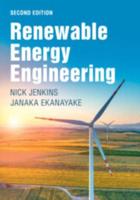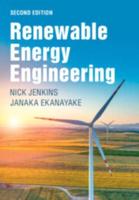Publisher's Synopsis
Engineering Energy Storage, Second Edition, explains the engineering concepts of different energy technologies in a coherent manner, assessing underlying numerical material to evaluate energy, power, volume, weight, and cost of new and existing energy storage systems. Offering numerical examples and problems with solutions, this fundamental reference on engineering principles gives guidance on energy storage devices, setting up energy system plans for smart grids, engineering single technologies and comparing them, understanding the reasoning for losses in efficiency, and much more. This new edition advances the description of energy revolutions, with the premise that we are now in the most invasive and comprehensive energy revolution since the first industrial revolution. There is increased focus on the specifics of energy and power, as well as charging times for energy storage solutions compared to traditional means. The chapter on batteries is extensively expanded and now considers the carbon footprint of battery production and battery production processes. All technology costs are updated, and mineral limitations for the technologies are also discussed. More information regarding use scenarios for different energy storage solutions is included, and the exercises and worked problems are renewed and augmented, giving the reader a deeper understanding of the engineering aspects of energy storage. Designed for those in traditional fields of science as well as professional engineers in applied industries, this book is an ideal resource for undergraduate and postgraduate students, engineers, R&D, and industrial personnel working with energy storage systems or looking to extend their competencies into new areas.








